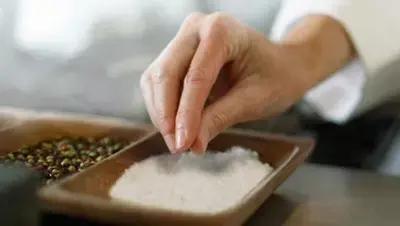- Home
- Medical news & Guidelines
- Anesthesiology
- Cardiology and CTVS
- Critical Care
- Dentistry
- Dermatology
- Diabetes and Endocrinology
- ENT
- Gastroenterology
- Medicine
- Nephrology
- Neurology
- Obstretics-Gynaecology
- Oncology
- Ophthalmology
- Orthopaedics
- Pediatrics-Neonatology
- Psychiatry
- Pulmonology
- Radiology
- Surgery
- Urology
- Laboratory Medicine
- Diet
- Nursing
- Paramedical
- Physiotherapy
- Health news
- Fact Check
- Bone Health Fact Check
- Brain Health Fact Check
- Cancer Related Fact Check
- Child Care Fact Check
- Dental and oral health fact check
- Diabetes and metabolic health fact check
- Diet and Nutrition Fact Check
- Eye and ENT Care Fact Check
- Fitness fact check
- Gut health fact check
- Heart health fact check
- Kidney health fact check
- Medical education fact check
- Men's health fact check
- Respiratory fact check
- Skin and hair care fact check
- Vaccine and Immunization fact check
- Women's health fact check
- AYUSH
- State News
- Andaman and Nicobar Islands
- Andhra Pradesh
- Arunachal Pradesh
- Assam
- Bihar
- Chandigarh
- Chattisgarh
- Dadra and Nagar Haveli
- Daman and Diu
- Delhi
- Goa
- Gujarat
- Haryana
- Himachal Pradesh
- Jammu & Kashmir
- Jharkhand
- Karnataka
- Kerala
- Ladakh
- Lakshadweep
- Madhya Pradesh
- Maharashtra
- Manipur
- Meghalaya
- Mizoram
- Nagaland
- Odisha
- Puducherry
- Punjab
- Rajasthan
- Sikkim
- Tamil Nadu
- Telangana
- Tripura
- Uttar Pradesh
- Uttrakhand
- West Bengal
- Medical Education
- Industry
Dietary salt intake tied to risk of atopic dermatitis: Study

USA: A recent study found that dietary salt intake is associated with an increased atopic dermatitis (AD) risk and salt restriction could be offered as a low-cost, safe intervention for AD patients in diverse settings. Additional studies however are required using specific measures of atopic dermatitis in a longitudinal population cohort.
The study findings were presented at the Society for Investigative Dermatology Annual Meeting, held May 18 to 21 in Portland, Oregon.
Diet is a critical environmental factor driving the onset and persistence of atopic dermatitis. Recent studies have shown that most of the body's exchangeable sodium is stored in the skin and that high sodium environments perpetuate and trigger local immune dysregulation. This supports the hypothesis that excessive dietary sodium intake could be linked to atopic dermatitis.
Against the above background, Morgan Ye, the University of California, San Francisco, and colleagues aimed to study the association between sodium intake and atopic dermatitis using data from 13,183 children and adults. Data was collected from the 1999-2000, 2001-2002, and 2003-2004 cycles of the National Health and Nutrition Examination Survey, which included validated dietary intake questionnaires and questions about participants' history of dermatitis, eczema, or rash. The National Cancer Institute method was used to estimate normalized values for usual dietary sodium intake were estimated.
Key findings include:
- The average dietary sodium intake was 3.30 grams (standard deviation 1.58), 809 (6%) participants reported current dermatitis at the time of the survey, and 1,518 (12%) participants reported dermatitis in the past year.
- After adjusting for potential confounders including age, sex, ethnicity, and poverty income ratio in logistic regression models, we found that a 1 gram increase in dietary sodium intake was associated with an increased risk of current dermatitis (AOR 1.22), and a marginally significant increase in dermatitis in the past year (AOR 1.15).
"Our findings support for salt restriction as a low-cost, safe intervention for atopic dermatitis that could be offered in diverse settings," wrote the authors. "Additional research is however needed using more specific measures of atopic dermatitis in a longitudinal population cohort."
Reference:
Dr Kamal Kant Kohli-MBBS, DTCD- a chest specialist with more than 30 years of practice and a flair for writing clinical articles, Dr Kamal Kant Kohli joined Medical Dialogues as a Chief Editor of Medical News. Besides writing articles, as an editor, he proofreads and verifies all the medical content published on Medical Dialogues including those coming from journals, studies,medical conferences,guidelines etc. Email: drkohli@medicaldialogues.in. Contact no. 011-43720751


